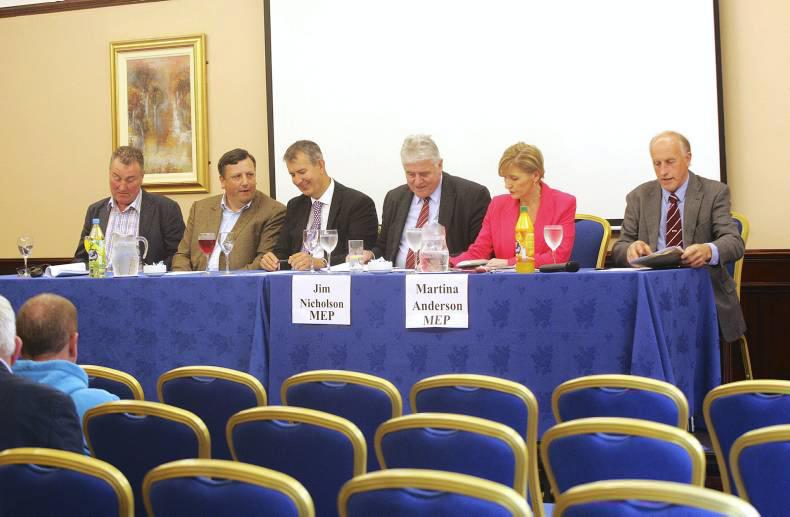Perhaps one of the most surprising aspects of the UK referendum result last week was that the Leave result seems to have come as a shock to everyone.
Since last Thursday, financial markets have been in turmoil, and the British political system is in somewhat of a meltdown. The next British prime minister has a monumental task ahead to negotiate an orderly exit and a new relationship with the EU. Over the next two years, this process will dominate the political agenda and the thoughts of civil servants in London, Cardiff, Belfast and Edinburgh. A mass of legislation will have to be rewritten.
Crucial for the UK in negotiations will be freedom to trade across Europe. That will mean we still have to meet EU standards, pay into the system and probably also have to allow free movement of people. A new British government will not get it all its own way in negotiations. Will all the upheaval have been worth it?
But for those of us who advocated staying in the EU, we must accept there were legitimate arguments put by the Leave side of the debate, and these arguments generally resonated with the majority of local farmers. Only time will tell who was right or wrong.
In the short term, we could see local agriculture receiving a boost from currency movements. With sterling under pressure against the US dollar, it should help to lift market returns to local dairy processors. The same will happen because of a weak euro, which also makes our lambs more attractive to southern buyers and Irish beef less prime competitive in the British market. If sterling remains weak to the end of September, it would also lift direct payments to NI farmers this autumn. Presumably, all farmers will welcome that, even if a majority don’t seem to actually want the EU money anymore.
Full coverage: Brexit
Perhaps one of the most surprising aspects of the UK referendum result last week was that the Leave result seems to have come as a shock to everyone.
Since last Thursday, financial markets have been in turmoil, and the British political system is in somewhat of a meltdown. The next British prime minister has a monumental task ahead to negotiate an orderly exit and a new relationship with the EU. Over the next two years, this process will dominate the political agenda and the thoughts of civil servants in London, Cardiff, Belfast and Edinburgh. A mass of legislation will have to be rewritten.
Crucial for the UK in negotiations will be freedom to trade across Europe. That will mean we still have to meet EU standards, pay into the system and probably also have to allow free movement of people. A new British government will not get it all its own way in negotiations. Will all the upheaval have been worth it?
But for those of us who advocated staying in the EU, we must accept there were legitimate arguments put by the Leave side of the debate, and these arguments generally resonated with the majority of local farmers. Only time will tell who was right or wrong.
In the short term, we could see local agriculture receiving a boost from currency movements. With sterling under pressure against the US dollar, it should help to lift market returns to local dairy processors. The same will happen because of a weak euro, which also makes our lambs more attractive to southern buyers and Irish beef less prime competitive in the British market. If sterling remains weak to the end of September, it would also lift direct payments to NI farmers this autumn. Presumably, all farmers will welcome that, even if a majority don’t seem to actually want the EU money anymore.
Full coverage: Brexit








SHARING OPTIONS